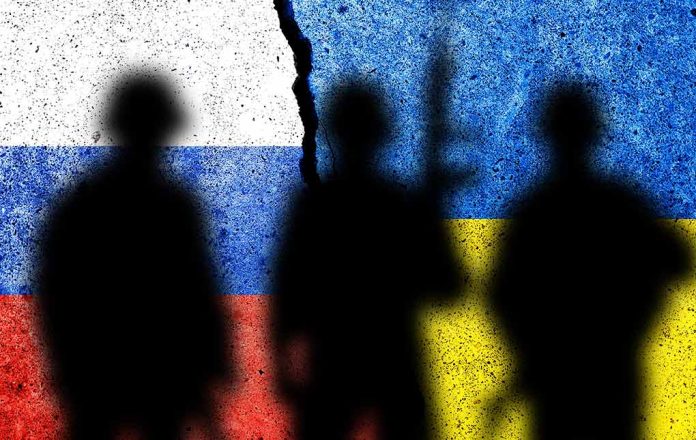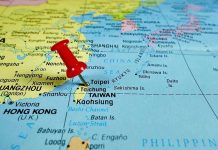
The Organization for the Prohibition of Chemical Weapons (OPCW) has confirmed the presence of banned CS gas in conflict zones within Ukraine, igniting international concern over the use of chemical weapons in warfare.
Key Takeaways
- OPCW found banned CS gas in samples from Ukrainian conflict areas linked to Russia.
- The use of riot control agents like CS gas is prohibited under the Chemical Weapons Convention.
- This marks the first documented use of CS gas in active war zones in Ukraine.
- OPCW confirmed the chain of custody for the samples but did not identify who used the chemical.
- Findings highlight the importance of enforcing international chemical weapons bans.
Evidence of Chemical Warfare
The OPCW’s investigation into Ukrainian conflict zones uncovered samples containing the banned CS riot control agent. Located near a military dugout, the samples included four grenade shells, three soil samples, and two vegetation samples. Ukraine sought the OPCW’s help and provided samples following an incident in September near Illinka, Dnipropetrovsk region.
This report has intensified the scrutiny around chemical warfare, bringing to light the urgency of strict adherence to international agreements. The OPCW collected documentation, digital files, and witness testimonies during their visit, reinforcing the investigation’s credibility.
International Implications
Both the United States and the United Kingdom have accused Russia of violating the Chemical Weapons Convention (CWC) by allegedly using chloropicrin and other riot control agents in Ukraine. Such allegations have been met with denial by both Russia and Ukraine, each blaming one another for the chemical weapon usage while remaining under the global microscope.
“The results of the analyses of these samples conducted by two OPCW designated laboratories … indicate that both a grenade and a soil sample… contained the riot control agent known as CS.” – OPCW
The OPCW’s findings underscore the importance of maintaining and enforcing the Chemical Weapons Convention. This becomes paramount as countries navigate the complexities of modern warfare while striving for peace and security on the international stage.
Chemical weapons watchdog finds prohibited CS tear gas use against Ukraine forces https://t.co/qH6mUb6INO
The Organization for the Prohibition of Chemical Weapons (OPCW) has confirmed the presence of prohibited tear gas in samples collected from Ukraine’s conflict zone, follo…
— GMan (Ґленн) ☘️🇬🇧🇺🇦🇺🇸🇵🇱🇮🇱🍊🌻 (@FAB87F) November 19, 2024
Conclusion
The OPCW’s confirmation of banned CS gas use in Ukraine serves as a critical reminder of the need for unwavering enforcement of international weapons conventions. While the specific perpetrators have yet to be identified, the responsibility falls on the global community to ensure that chemical warfare agents are eradicated from all conflict zones, thus upholding the integrity of international law and human rights.
The ongoing situation requires diligent monitoring and intervention by international bodies to prevent further violations and to protect innocent lives from the horrors of chemical warfare.
Sources:
- Chemical Weapons Watchdog Says Banned Gas Found in Ukraine Samples – The Moscow Times
- Chemical weapons watchdog says found banned CS agent in samples supplied by Ukraine | The Times of Israel
- Chemical Weapons Watchdog Says Found Banned CS Agent in Ukraine-Supplied Samples – The Moscow Times







